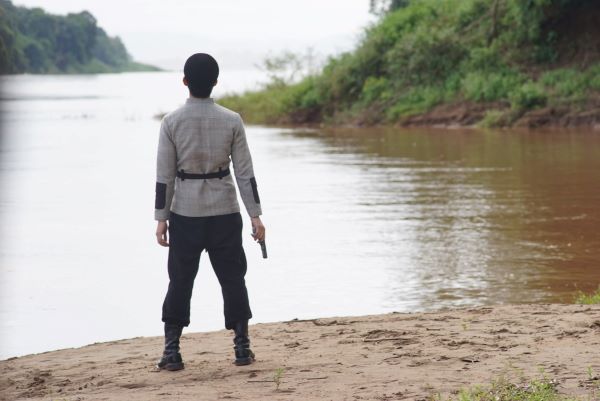Mekong 2030 is an anthology of five short films curated by Laos’ Luang Prabang Film Festival featuring directors from different Southeast Asian countries: Cambodia, Laos, Myanmar, Thailand, and Vietnam. With a focus on the Mekong river, which runs through each of the five countries featured, each director has been tasked with presenting their visions for the year 2030, the changes that will have occurred, and how communities that rely on the Mekong will be affected by it.
Despite the shared goal, each director has taken the concept in different directions, each presenting something inherently different. The series showcases a verisimilitude of film in terms of both genre and style, including Black-Mirror-esque dystopian sci-fi, family drama, and pensive social commentary to list but a few. The result is ultimately a mixed-bag that remains thought-provoking even if some elements are less cohesive than others.
Despite the different approaches and ideas on display, there is a commonality between many of the films on display. Kulikar Sotho’s ‘Soul River’ (Cambodia), Anysay Keola’s ‘The Che Brother’ (Laos), and Sai Naw Kham’s ‘The Forgotten Voices of the Mekong’ (Myanmar) all explore the conflict of old and new, as traditional ways of life within rural communities are seemingly being forgotten to make way for the developed future, or destroyed as a result of deforestation, soil erosion, and flooding caused by climate change.
Sotho delivers a tense and sombre, albeit too short, depiction of a fisherman and company man battling over possession of a lost Khmer relic that they both hope to sell. This is radically different to Keola’s more action-oriented portrayal of a son trying to prevent the exploitation of his mother by his older siblings in the midst of a new blood-disease which is ravaging the world. Alongside ‘The Forgotten Voices of the Mekong’’s exploration of the after-effects of short-term profiteering of one’s homeland, they all evoke similar imagery through their metaphors.
They may not be subtle, and some may deliver them better than others – ‘The Che Brother’ relies a bit too heavily on its half-baked action to succeed as well as it might like – but they all remain deeply poignant in their own individual ways. Moreover, they each encourage the audience to reconsider their approaches to the environment and their homes; with the alternatives being notably bleak prospects.
By contrast, Pham Ngoc Lan’s ‘The Unseen River’ (Vietnam) – which rounds out the anthology – takes a more peaceful and slightly positive view. A young man seeks the cure to his insomnia from a monk. Meanwhile, former lovers are finally reunited at a decommissioned hydro-electric plant. These snapshots feel more like set-dressing however as the director’s use of extreme long shots reveal the Mekong to be the true focus. Infinitely larger than anything the characters are experiencing, it dominates the screen for some truly evocative imagery. In allowing themselves to be drawn back to the river, all reject the anxieties of modern life, and reconcile their places in the world.
It is in Anocha Suwichakornpong’s ‘The Line’ (Thailand) that Mekong 2030 has its greatest stumble however. An artist, preparing to display an exhibition focusing on animism and river ecology struggles to glean satisfaction from the project. ‘The Line’ feels the most thematically incongruous from the rest of the films on offer. Perhaps it’s the nonlinear approach, or its over-reliance on philosophical musings, but it feels severely lacking; especially in contrast to the other films on offer.
Collectively, Mekong 2030 offers a smorgasbord cinema from a number of highly talented filmmakers. They are all clearly passionate about their subject matters and, for better or for worse, unashamed to bring their unique visions of the future to bear.
Screening as part of Glasgow Film Festival 2021
